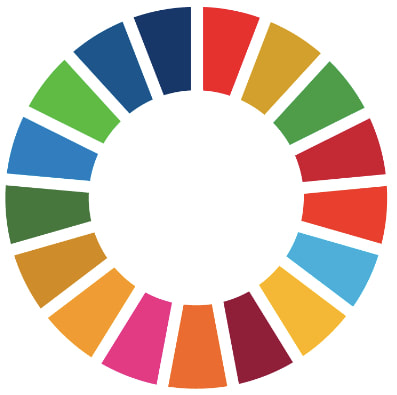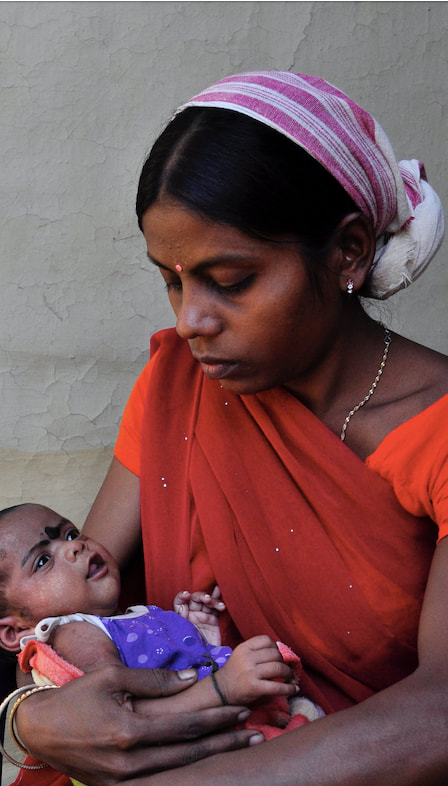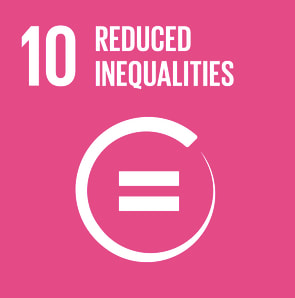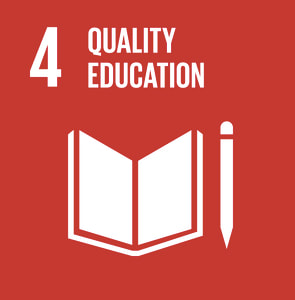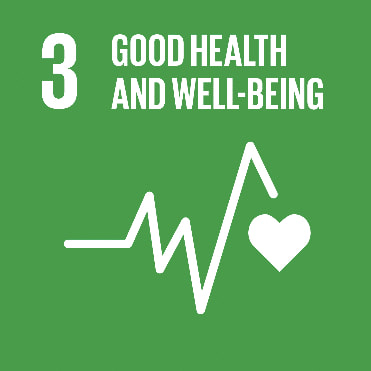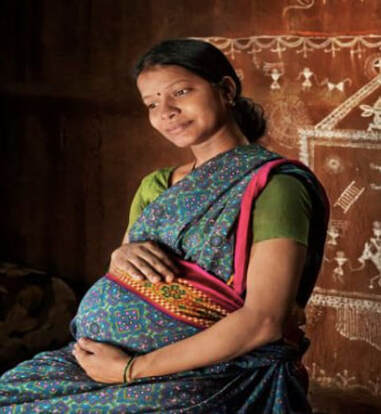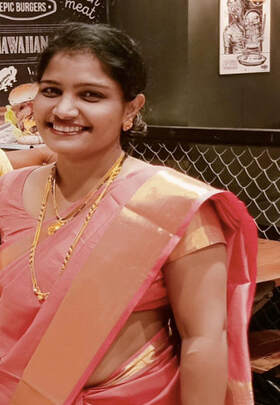Doctoral Nursing Research...
'INVENTION' FOR RURAL INDIAN MOTHERS' HEALTH
By Dr. Sonali Suryakant Sangrulkar, HOD of Community Health Nursing Department
K. J. Somaiya College of Nursing, Mumbai, Maharashtra, India
K. J. Somaiya College of Nursing, Mumbai, Maharashtra, India
|
We have reached an important landmark crossroads—the closing of one millennium and the beginning of another. Over the centuries, the average length of human life has increased with improvements in the living conditions.
In India, maternal health trends are drawing more and more attention of the government and the public. According to the World Health Organization (WHO), India has made ground-breaking progress in reducing the maternal mortality ratio (MMR) by 77%, from 556 per 100 000 live births in 1990 to 130 per 100 000 live births in 2016. This puts the India on track to achieve the Sustainable Development Goal (SDG) target of an MMR below 70 by 2030. Family support and care providers contribute the largest factor in positive maternal results. |
Further to these issues, WHO has defined a ‘Maternal Near-Miss’ (MNM) as “a woman who nearly died but survived a complication that occurred during pregnancy, childbirth or within 42 days of termination of pregnancy” — irrespective of receiving emergency medical/surgical interventions. To address this concern, WHO has developed specific guidelines for care providers to reduce these ‘near-misses.’
However, on average, four contributing factors still lead toward negative maternal outcomes: 1) lack of knowledge; 2) missed warning signs; 3) delays in referral/transportation and 4) reluctances to seek care. These complications are still prevalent in the inequalities found in remote and rural India even after so much of the above research has been achieved. My research has focused on decreasing these maternal complications because no previous study has linked the above ‘near-miss’ findings with the current knowledge-base of India’s rural health care providers.
However, on average, four contributing factors still lead toward negative maternal outcomes: 1) lack of knowledge; 2) missed warning signs; 3) delays in referral/transportation and 4) reluctances to seek care. These complications are still prevalent in the inequalities found in remote and rural India even after so much of the above research has been achieved. My research has focused on decreasing these maternal complications because no previous study has linked the above ‘near-miss’ findings with the current knowledge-base of India’s rural health care providers.
|
“Four contributing factors still lead
toward negative maternal outcomes.” Research Identified These Problems:
• While the WHO ‘near-miss’ guidelines have been established and circulated among the rural health care workers, this 150-250 page text is too lengthy to implement. • Hence, these protocols have not been that beneficial for the rural health care workers. • There have been no implementations of guidelines for treating maternal complications. • The rural health care workers are aware of maternal complications and the medical treatment regimes but there were still no protocols for them to follow. • Rural health care workers were treating mothers in a haphazard way. • Rural health care workers were all dependent on the medical officers for many treatments of complications. • These treatments were delayed as no easy protocols were available. Hence, mothers’ lives were still at high risk. |
• There were gaps between knowledge of potential complications and rural practice protocols to address these problems quickly.
• There were reluctances among the rural health care workers to upgrade their knowledge on maternal complications.
• There were reluctances among the rural health care workers to upgrade their knowledge on maternal complications.
“Treatments were delayed as no easy protocols were available.”
|
“Rural health care workers need better awareness to triage mothers according to their risks.”
“Thinking and then acting is a wise call taken at the time of emergencies.” |
Who Will Benefit?
Because of these challenges, this topic was selected for study. This research will eventually help to: • Increase awareness of maternal complications among the rural health care workers. • Simplify their treatment regimens for treating maternal complications. • Update the knowledge of the rural health care workers. • Reduce maternal morbidities. • Treat the patients with maternal complications even before doctors' orders. • Increase self-confidence of rural health care workers in treating mothers with complications. • Replace the existing lengthy protocol with a new short and up-to-date protocol. • Provide a handy, easy-to-use, easy-to-understand protocol to rural health care workers. Rural health care workers need better training and awareness to triage mothers according to their risks. Thinking and then acting is a wise call taken at the time of emergencies. |
|
Sharing My Invention!!!!
The protocol my research has developed is intended to serve as a reference material for rural health care workers to manage maternal-risk complications that have typically been addressed at far-away medical facilities. Immediate diagnosis has been an essential key factor for a woman presenting with a life-threatening obstetric complications in an emergency situation. However, the main text of this new protocol is centered on a mother’s warning symptoms rather than achieving a medical diagnosis in a medical facility. This symptom-based approach is different than most medical texts. |
“This symptoms-based approach is different from most medical texts.”
|
This new 'invention' protocol revolves around making rapid assessments followed by quick decision making. This “first look” aspect emphasizes a focus on signs, symptoms and contributory factors of maternal risk rather than medical diagnosis. [While laboratory investigations and other tests — related to diagnosis — are typically unavailable in rural settings, these findings are not given the priority they would have tertiary hospital settings.]
|
The framework of this new protocol establishes:
• Baseline assessment — Does this include signs and symptoms, as well as a history-taking to assess contributory factors? • Situation analysis — This assessment quickly identifies problems. • Rapid evaluation — This rigorous, immediate evaluation occurs within the necessary short time-frame without sacrificing the quality by the health care professionals. • Task force recommendations — Based on the above, suggestions are then provided — to the rural health care workers — as to what level of care can be expected and provided at primary, secondary and tertiary level care facilities. • Levels of care –
|
|
“...easy to understand,
self-expanatory, feasible, comprehensive, descriptive and relevant!” “Aimed to ensure prevention and early detection of maternal problems...”
“...to identify these challenges at all levels of care — from rural village peripheral levels to tertiary hospital levels.”
“...to increase community understanding of this ‘near-miss’ concept to improve maternal health outcomes in rural settings.”
|
Participants' Responses
A survey was made to assess this new protocol. Survey data showed that a majority of study participants strongly agreed that this protocol — developed from the WHO ‘near-miss guidelines — is easy to understand, self-explanatory, feasible, comprehensive, descriptive and relevant! Benefits to Rural Health Care Workers Health advancements have not yet met everybody in need, even where improvements have been made and the gains have been attempted to be distributed equitably through communities. This problem extends specifically to maternal health where the most vulnerable mothers do not have proximity to healthy-delivery care. This challenge continues to be one of the most segregated primary care systems across rural areas around the world. This study helped the nurses and the other health care professionals — in rural settings — by providing easy-access information on the ‘near-miss’ concept. This is aimed to ensure the prevention and early detection of maternal problems by community outreach programs and through the development of understanding among the population of pregnant mothers themselves. This Study Will Also Help: • Health care workers by increasing the awareness regarding the ‘near-miss’ concept. • Health care workers to triage ‘near-miss’ mothers on the basis of their maternal complications. • Health care workers to identify these challenges at all levels of care — from rural village peripheral levels to tertiary hospital levels. • Health care workers to increase community understanding of this ‘near-miss’ concept to improve maternal health outcomes in rural settings. |
|
About the Author:
Dr. Sonali Suryakant Sangrulkar was born in the 1980s. She is creative, innovative and imaginative. She has individuality and stands out. She is in this profession of nursing since the last 20 years. She started her student life in the year 2001. At that time, she was doing her Nursing Diploma and was unaware of the fact that one day she would soar so high. In the year 2010, she took a step ahead by moving towards a degree course. Soon thereafter, in 2012, she achieved admission to her Masters in Nursing and she said “it was like a dream come true.” While doing her Masters, she came across the topic of geriatric abuse. This thought was so-much-mingling in her mind that she did an exclusive research in that area. In 2020, she completed her Doctoral Degree in the above maternal health topic and now has an opportunity to present her innovation to everyone. |
DATELINE: March, 2015
NURSES REACHING OUT TO THE MASSES: THE INDIAN SCENARIO
Featured here is a video of the unfolding story of nursing's unique role in caring for India's 1.2+ billion population — illustrated with 160 images of nurses, people, places and healthcare. It also features the philanthropic service of Mumbai's P. D. Hinduja National Hospital to rural peoples and communities in the State of Maharashtra.
First prepared for the 2015 United Nations Commission on the Status of Women (CSW) in New York City, this video's concept, research and narration are presented by Indian nursing leader Dr. Phalakshi Manjrekar, who serves as the distinguished Director of Nursing at P.D. Hinduja National Hospital and on the Executive Committee for NIGH World's Board of Directors.
First prepared for the 2015 United Nations Commission on the Status of Women (CSW) in New York City, this video's concept, research and narration are presented by Indian nursing leader Dr. Phalakshi Manjrekar, who serves as the distinguished Director of Nursing at P.D. Hinduja National Hospital and on the Executive Committee for NIGH World's Board of Directors.
Nightingale Initiative for Global Health • 2020 ©
